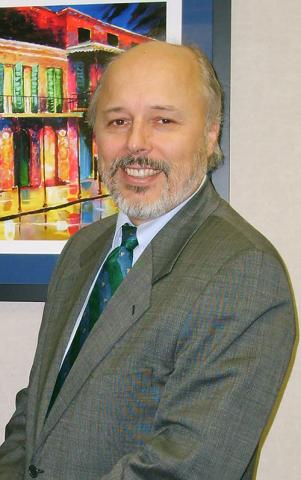Prescott Deininger, PhD
The Joe W. & Dorothy Dorsett Brown Foundation Chair in Oncology, Associate Director for Basic Science, Tulane Cancer Center & Louisiana Cancer Research Center

Biography
Dr. Deininger received his A.B. in Chemistry from the University of California at Santa Cruz in 1973. He then carried out doctoral studies with Dr. Carl Schmid at the University of California at Davis on the sequence organization of the human genome, obtaining his Ph.D. in 1978. He carried out postdoctoral studies with Dr. Theodore Friedmann (Japan Prize Winner) at UC at San Diego working on sequencing the polyoma genome, followed by a year with Dr. Frederic Sanger (2 Nobel Prizes) at the MRC Laboratory of Molecular Biology in Cambridge, England studying EBV.
In 1981 he took a faculty position in Biochemistry and Molecular Biology at LSU Medical Center where he reached the rank of professor in 1990. He spent a year on sabbatical in 1989 with Dr. Charles Stiles at the Dana Farber Cancer Institute and Harvard School of Medicine. He also served as the Founding Director of the Laboratory of Molecular genetics at the Ochsner Medical Foundation.
He took the position as Associate Director of the Tulane Cancer Center at Tulane University Health Sciences Center in 1998, Interim Director in 2007, and Director of the Tulane Cancer Center in 2009. Dr. Deininger has published over 170 papers on the subject of the human genome. He serves on advisory boards for several major NIH grants and the boards of several other journals, and has served on NIH, DOD and NSF grant review panels. Dr. Deininger is a member of the Tulane Center for Aging.
The primary theme of his research is genetic instability in the human genome. This is not only a critical issue in carcinogenesis, but also in a number of genetic disorders, as well as sensescence and aging. Dr. Deininger's laboratory has carried out extensive analysis of the mobile elements in the human genome to understand their mechanism of spread and impact throughout the human genome. Ongoing studies are also being conducted on the impact of mobile elements on human genome diversity and also making assessments of their influence in carcinogenesis. More recently, his laboratory has expanded studies into the genetic and environmental contributions to the instabilities associated with human repetitive elements. This includes studies into the influence of DNA repair pathways on both insertional mutagenesis of mobile elements and subsequent recombination between Alu elements.
Research
Tulane Cancer Center Program Member
Genetic instability in the human genome
Contributions
Interests
Genetic instability and cancer
